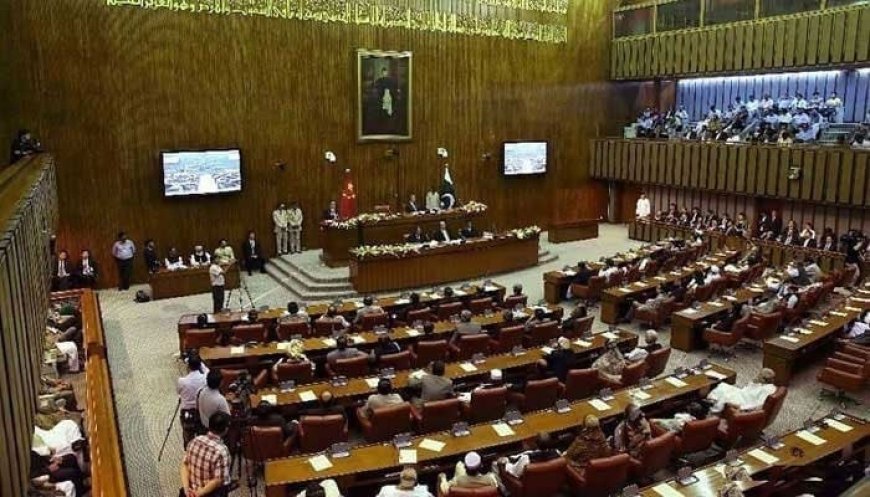Senate bill seeks to regulate AI, proposes billion-rupee fines

1. Bill titled "Regulation of Artificial Intelligence Act 2024" was tabled in Senate on August 9 by PML-N Senator Afnan Ullah Khan
Senator Afnan Ullah Khan of the Pakistan Muslim League-Nawaz (PML-N) has introduced a bill in the Senate aimed at regulating Artificial Intelligence (AI) to address its "various risks." The proposed legislation, known as the 'Regulation of Artificial Intelligence Act 2024,' could impose hefty fines ranging from Rs1.5 billion to Rs2.5 billion for violations.
Presented on August 9, the bill was referred to the Senate's Standing Committee on Information Technology for further review on September 9, according to The News.
**Objectives of the Bill**
In his statement, Senator Khan stressed the urgent need to monitor and regulate the dissemination of data and information both nationally and internationally. He outlined the bill's goals, which include:
- Enhancing human oversight to prevent potential disasters and ensuring a secure AI system that promotes growth and productivity.
- Establishing a "National Artificial Intelligence Commission" based in Islamabad, with the following mandates:
- Ensuring equitable AI opportunities for all citizens, irrespective of religion, gender, ethnicity, location, financial status, or physical ability.
- Maintaining human oversight in critical areas such as national security, health, and education.
- Ensuring AI systems are secure, free from malicious use, and error-free.
- Developing a strong AI research and development infrastructure.
- Using AI to improve public services in sectors like healthcare, finance, trade, and science.
- Protecting the privacy and safety of AI users and advocating for transparency in AI data collection, storage, and usage.
- Strengthening the country's telecommunications systems, digital governance, and cybersecurity.
Commission members, appointed by the government, would be barred from holding public or political office concurrently.
**Violations and Penalties**
The bill proposes substantial fines for violations, ranging from Rs1.5 billion to Rs2.5 billion, with potential for increased penalties for cases involving sensitive or classified data. However, the bill does not detail specific violations that would trigger these fines.
**International Context**
In March, the United Nations General Assembly adopted its first global AI resolution, encouraging member states to monitor AI for risks to human rights, personal data, and fundamental freedoms.
**Expert Opinions**
Digital rights activists have raised concerns about the proposed legislation:
- Nighat Dad, founder of the Digital Rights Foundation, criticized the bill as "odd" and "abstract," noting the absence of data protection or privacy laws in the country. She described the bill as lacking in substantive detail and focused excessively on forming a commission.
- Asad Baig, director of Media Matters for Democracy, highlighted that global debates around AI often involve issues like deepfakes and potential solutions like watermarking AI-generated content. He argued that the bill does not address these issues and suggested a need for AI-friendly policies and increased research funding instead of immediate regulation.
- Mubariz Siddiqui, founder of Carbon Law, echoed concerns that the bill is not well-conceived. He emphasized the complexity of AI regulation and the need for a balanced approach that addresses potential misuse without hindering innovation.

















































